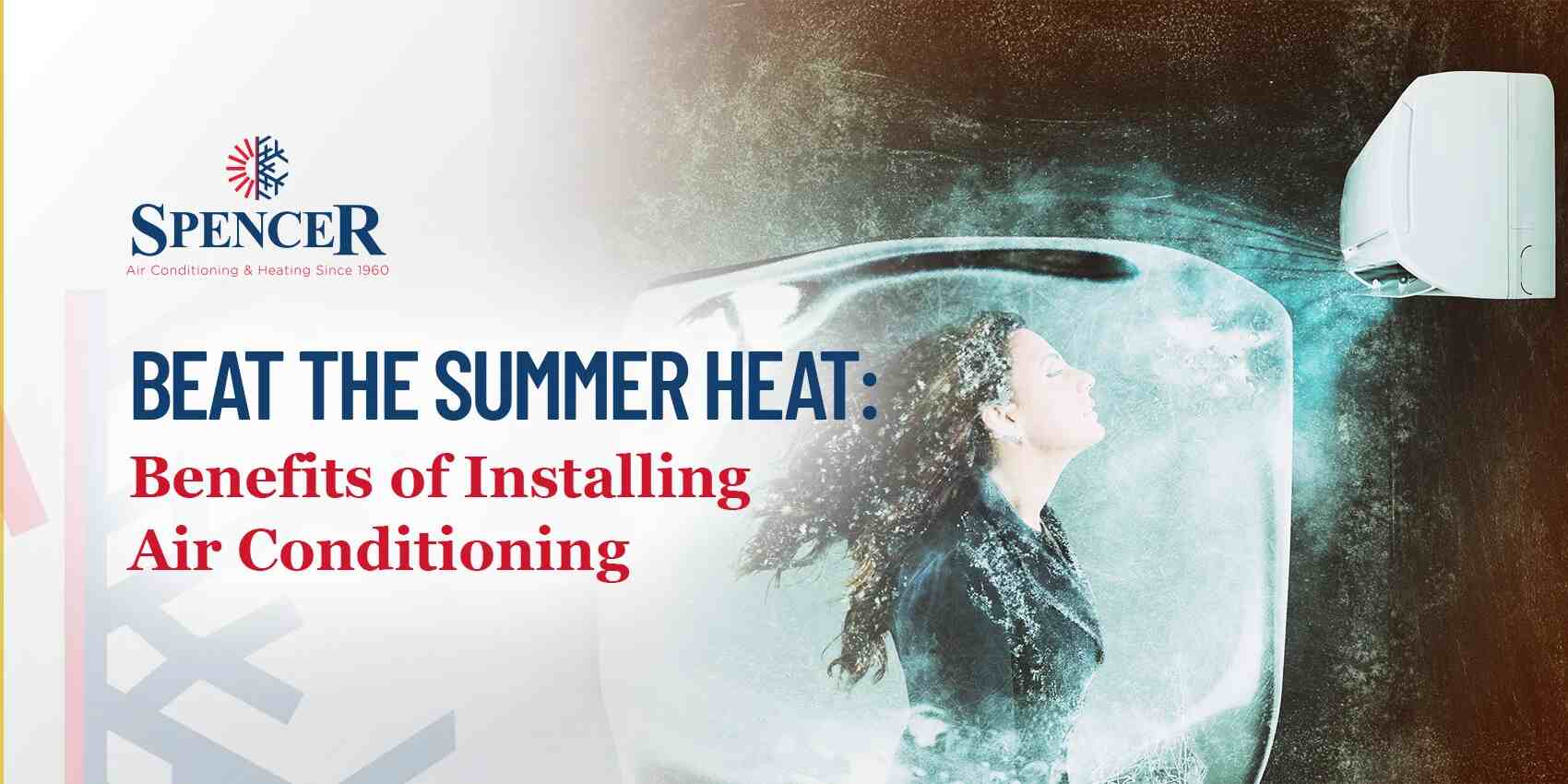If you’re feeling hot, tired, and irritable, it’s probably because of the lack of air movement in your home. If air movement isn’t ideal, heating systems have to work harder. This means that your energy bills will be higher. The good news is that air conditioners are designed to make homes cooler, healthier, and more comfortable. In this blog post, we’ll talk about the different types of air conditioners available and how they help you beat the heat.
Different types of air conditioners
Air conditioning is an effective way to cool a space quickly and efficiently. Traditional air conditioners use air-sourced central heat pumps, also known as air conditioners, to cool rooms. These air conditioners are similar in structure and function to home refrigerators but with added features such as heating and dehumidification. They constantly run and have a large capacity for air intake and output, meaning they can effectively cool large spaces.
Smart thermostats are another option for controlling indoor temperatures. These digital devices allow homeowners to easily set the temperature on their thermostats and monitor the indoor temperature remotely via their smartphone or computer.
Another type of air conditioner is a portable unit, which is used when it’s too hot outside to use a central air conditioner or when you need to quickly cool down a space without using electricity. These units use evaporative cooling technology to transfer moisture from the air into a liquid coolant that is then circulated through coils inside the unit.
Nowadays, many households opt for seasonal thermal energy storage (STES) systems. These systems use STES materials such as batteries or capacitors to store energy during peak seasons and release it in colder times, helping households save money on energy costs.
Benefits of using an air conditioner
Using an air conditioner can help you beat the heat in many ways. It can reduce indoor temperatures and make homes more comfortable. Air conditioners can help reduce humidity levels, providing a more comfortable environment. They can also help save money on cooling costs by providing more efficient cooling than other systems. Additionally, air conditioners can improve air quality by filtering dust and allergens. They can also reduce heat-related stress on the body by providing warm air. Overall, air conditioners are a great way to beat the heat and make your summers extra- swee.
Tips for maintaining your air conditioner
– Change filters regularly and brush dirt and obstructions from the coils and drains at the start of each cooling season.
– Test your fire alarm and carbon monoxide detector, and replace the batteries at least twice a year.
– Choose the right thermostat for your air conditioner that is easy to install, program, and use.
– Have a professional service the system if it is not producing as much cold air as is normal.
– Find a system that best fits your cooling needs with the help of a dealer.
Aeration plays an important role in air conditioning efficiency by keeping the air clean. It also prevents debris from building up on the coil, thus improving electrical conductivity. Selecting an air conditioner with high-efficiency cooling technology will also help you save money on electricity costs by reducing energy consumption.
Advantages and disadvantages of using an air conditioner
Air conditioners have many advantages over using a cooling unit in hot, humid environments. Air conditioners are able to control humidity levels inside occupied spaces, allowing for improved comfort. This can help people stay healthier by preventing the feeling of humidity on the skin and reducing the risks of health problems such as asthma and allergy attacks. Furthermore, air conditioners are more energy efficient than cooling units, so they can save users money on their energy bills. However, air conditioners aren’t capable of creating a consistent indoor environment, no matter the external weather conditions. Also, air conditioners cost money to run and may not be worth the savings when compared to other cooling options in hot climates.
Air conditioners also affect the environment negatively by releasing significant amounts of carbon dioxide during operation. This can contribute to global warming and climate change. As such, it’s important to consider air conditioning’s benefits and drawbacks before making a decision regarding its use in hot environments.
What are the dangers associated with air conditioning?
Air conditioning is a useful tool for keeping a home comfortable during hot and humid weather. However, air conditioners are responsible for releasing 117 million metric tons of carbon dioxide into the air each year. Additionally, air conditioners can lead to mold growth and other moisture-related problems due to a lack of humidity control in hot, humid climates. This is because high indoor humidities can lead to health and comfort problems such as dry skin, itchy eyes, and nosebleeds. To avoid these issues, make sure your air conditioner is properly sized and installed by an experienced professional. Also, be aware of the dangers associated with over-consumption of air conditioning and ensure that you’re only using it when necessary.
Tips for saving energy with air conditioning systems
-Upgrade your thermostat to a smart thermostat for better control over energy use
– Invest in an easy-to-install and program thermostat for a more energy-efficient solution
– Consider air conditioning options that are energy-efficient, intuitive, and glitch-free
– Choose an air conditioner that is the right size for your space to maximize energy efficiency
– Look for air conditioners with energy-saving features such as timers and adjustable speed settings
– Keep your home’s air conditioning system clean and free of debris to prevent air pollution and increase efficiency
– Use air conditioning when the air conditioner is needed and avoid using it when it is not necessary
– Avoid using air conditioning as a substitute for other cooling techniques, such as windows or fans. This will save energy but also reduces indoor air quality
– Finally, monitor your household’s energy use by investing in an energy analyzer. This will help you identify ways to reduce your energy consumption while keeping your home comfortable.
Conclusion
Air conditioners offer a range of benefits, from cooling and heating your home to improving air quality and reducing electricity costs. However, it’s vital that you understand how they work and take the right steps to keep them working safely and efficiently. This way, you can enjoy the cooling effects of air conditioning without any unwanted side effects. If you want to learn more about air-conditioner maintenance or want to hire an AC technician, get in touch with us today!





